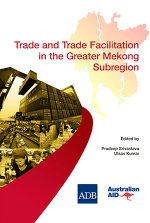Road and Electricity Infrastructure Work Stimulates Cambodia's Economic Growth
Better cross-border transportation and electricity links are central pillars of both the Greater Mekong Subregion program and Asian Development Bank's work in support of Cambodia's development.







